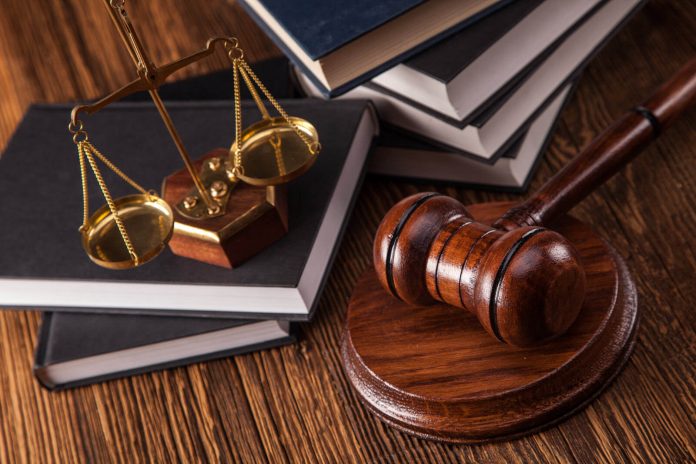This article is written by Vedansh Singh, from Jagran Lakecity University, Bhopal. This is an exhaustive article about the conflicts which occur during the internal working of the state and state agencies and their negative effects on the administration and possible solutions.
Table of Contents
Introduction
Our country India is still a developing country and for it to become developed the state government and the state agencies need to work together to ensure the development and the welfare of the state. But often there are conflicts between the state government and the state agencies that become the roadblock in the development of the state and lead to a lack of coordination between the parts of the state. These parts of the government are responsible for the welfare and development of the state. If they lack coordination and show such behavior the people start to lose confidence in the state authorities. An example of such conflict is the recent case of Param Bir Singh vs The State of Maharashtra (2021) where state agencies and state ministers were in a state of conflict, we will discuss the issue with the help of this case covering different perspectives of the issue.
Overview of the case of Param Bir Singh v. the State of Maharashtra
The case is about the conflict between the former commissioner of the Mumbai police Shri Param Bir Singh and Shri Anil Deshmukh, former Home Minister of Mumbai. The problem began between the two when the former commissioner Shri Param Bir Singh went to the supreme court and levelled corruption charges on then home minister Shri Anil Deshmukh after which he was transferred from his post of Mumbai Police Commissioner. In his letter to the CM, Singh alleged that the home minister wanted Assistant Police Inspector Sachin Vaze, Shri Sanjay Patel, Shri Dilip Bhujbal, and a few more police officials to extort around 100 crores monthly from bars and restaurants of the area, and not only about extortion but Singh also mentioned the continuous interference of the Home Minister in the investigation of past cases trying to direct the investigation using his power and clout of his position for his ulterior motives. Singh was transferred from the Commissioner of Mumbai Police to the Commandant General of Home Guards, which Singh says was done not on administrative grounds but because he was the whistleblower of the Home Minister’s corrupt malpractices. Since the transfer, Singh had been facing various charges and inquiries. An FIR was also filed against Singh under the Scheduled Caste and Scheduled Tribe (Prevention of Atrocities) Act,1989. Due to the matter of internal conflict between the state agencies and the state ministry, the public trust in the system was at stake. Singh in his writ petition submitted in the Bombay High Court wanted a CBI inquiry in the case against the Home Minister. So the court exercising its powers under Article 226 and Article 32 of the Indian Constitution ordered a CBI inquiry into Singh’s allegations on the home minister considering the matter to be of serious nature. After which the home minister resigned from his post.
The contention of the parties
The starting point of the issue is when the home minister used his power to extort money from the bar owners and other people of the state and wanted this task to be done by the police in their official capacity. He also consistently interrupted the police matters and various previous investigations of the police by directing the officials and instructing them on what to do and what steps need to be taken in several cases trying to interrupt police investigation. The former commissioner became the whistleblower in the matter. Mr. Singh raised his complaint after which he was transferred from his post. After Singh’s allegations on the home minister, the court ordered a CBI inquiry in the case. After these allegations home minister Anil Deshmukh resigned from his post. Questions are raised on both the parties i.e Mr. Singh and Mr. Deshmukh. The timing of Mr. Singh’s allegations is also being questioned. As the home minister’s interference could have been reported earlier as this indicates some kind of ulterior motives on the part of Mr. Singh.
Date wise chart of events of the case
- On 22nd March 2021, Mr.Singh approached the Supreme Court seeking CBI inquiry against then home minister Shri Anil Deshmukh and also challenged his transfer from the post of Mumbai police commissioner.
- On 23rd March 2021, a second petition was submitted in the Bombay High Court against Chief Minister of Maharashtra Uddhav Thackrey, home minister Anil Deshmukh and former commissioner of Mumbai Param Bir Singh for gross negligence wanting a court-monitored probe into the case by an independent agency.
- On 24th March 2021, the Supreme Court refused to entertain Singh’s plea asking for CBI inquiry into the allegations against the Home Minister asking him to approach the Bombay High Court. The Supreme Court also said there was no seriousness on the part of the state government to follow the policy reforms referring to the case of Prakash Singh & Ors. v. Union of India & Ors (2006).
- On 31st March 2021, Bombay High Court hearing Param Bir Singh’s petition against the home minister observed that Mr. Singh had failed to do his duty as he remained silent and did not complain about the offense earlier, knowing that the offense was committed. And the court reserved its judgment on his PIL seeking CBI inquiry into the case.
- On 5th April 2021, the Bombay High Court ordered CBI to conduct a preliminary inquiry against the home minister. After the Court’s order home minister Anil Deshmukh resigned from his post considering it ethically wrong to hold office after such allegations.
- On 6th April 2021, Anil Deshmukh approached the Supreme Court against the Bombay High Court’s order.
- On 8th April 2021, the Supreme Court refused to entertain Anil Deshmukh’s plea against CBI inquiry against him. The Supreme Court observed that the matter was serious, concluding that the inquiry was necessary in the case.
- On 29th April 2021, Param Bir Singh moved to Bombay High court against the Maharashtra government’s preliminary inquiries against him.
- On 21st May 2021, The Supreme Court refused Param Bir Singh’s prayers to transfer all the inquiries against any other state outside Maharashtra saying that you were part of the same department for 30 years and now you have lost trust in the department.
- On 24th May 2021, the Bombay High Court asked Param Bir Singh to withdraw its plea in the Supreme Court saying that the Court is not afraid to decide the matter.
- On 11th June 2021, the Supreme Court refused to entertain the writ petition filed by Param Bir Singh on the transfer of inquiry outside Maharashtra, mentioning that he was part of the same department for 30 years and now he does not trust his department.
- On 12th July, the Bombay High Court reserved order on Anil Deshmukh’s plea to quash CBI FIR.
- On 22nd July, the Bombay High Court quashed the Maharashtra government’s plea challenging the portion of CBI FIR which wanted to investigate the postings and transfers made by the former home minister allowing CBI to do the needful.
- On 23rd July, the Bombay High Court held that state governments have all the rights to raise grievances against the CBI if the investigation under the agency goes beyond the scope of the Court’s order in the absence of the state’s consent.
- On 28th July, the Bombay High Court reserved its judgment on the maintainability of Param Bir Singh’s challenge on the Maharashtra government inquiries against him. However, the Court refused to take any action against the state inquiries and held that it was being furnished at the last moment.
Findings of the court
The Court found the matter to be of great concern following which a CBI inquiry was ordered in the case, NIA and ED as the court seemed fit and proper according to the case were also involved, referring and relying on the judgment in Prakash Singh & Ors. v. Union of India & Ors (2006). The Court said that Shri Anil Deshmukh is the home minister and the state police department is under his control and direction. We cannot expect a fair and unbiased investigation in the case from the state police, this was the reason that the Court-appointed CBI in the case, exercising its powers under Article 226 and Article 32 of the Indian constitution. The Court also mentions the silence on the part of the former Mumbai police Commissioner Shri Param Bir Singh as he remained silent knowing the whole case and it is only after his transfer from his post of Mumbai Police Commissioner, that he levelled charges against the former home minister of Maharashtra Mr. Deshmukh with an ulterior motive. Param Bir Singh also requested the Court to shift his inquiry to an independent agency outside the state as he does not trust the internal inquiry which the court denied saying that he has served in the same department for more than 30 years and now he can not say that he doesn’t trust his department. The Court denied Singh’s request referring to the case of Romila Thapar v/s Union of India (2018), the Court reiterated the principle that the accused does not have a say in the appointment of the investigating agency.
Court has also given free hand to the CBI to investigate whoever was involved, not only Mr. Deshmukh.
The Court also gave the direction to complete the investigation within a reasonable time without taking any instructions or reporting to anyone except the Court to monitor the investigation and ensure its fairness and efficacy.
The detrimental effect on the administration of the state because of the conflict in executive agencies
The conflict between the state and the state executive agencies has a very detrimental effect on the administration. Both the state government and the executive agencies are responsible for maintaining law and order in the state working together. There may be disagreements, there may be differences in the opinions at the office, there may be many other conflicts and are normal as conflicts do occur which both the state and the state agency should try to resolve internally without the interference of any third party. But if we take the case of Param Bir Singh v. The State of Maharashtra, we see that such conflicts lead to a lack of trust and coordination amongst both parties. The issues in the case are such that the very faith of the public in the police department was at stake. Even a little truth in the allegations could impact the public’s confidence in the state police machinery.
For example, in a football match, one player alone cannot lead to victory. It’s a team sport and each player has his part to play, which may lead to victory if done properly. In the same way, the state government and the executive agencies are part of a team and both have a part to play and which is to be done as a team together and is very important for the welfare of the state. Such conflicts show the authority’s lack of cooperation and inefficiency to handle the responsibilities given to them, which directly affects the development and welfare of the state.
The possible solution
Such kinds of conflicts as in Param Bir Singh v. State of Maharashtra between the state and the state agencies may be handled proactively. The Court questioned former Mumbai Commissioner Shri Param Bir Singh that why he did not complain earlier about the Home Minister’s corruption charges and his continuous interference in the past cases. What took so long? If this incident had been reported earlier and handled the matter proactively, then the situation could have been different.
Singh’s silence worsened the matter and the result was in front of everyone. Such silence is common throughout the country in almost all departments. If anything wrong happens the person must report any kind of illegal acts then and there. This would sort the cases without delay, and the wrongdoer would be penalized to set an example so that such acts are not repeated.
If the wrongdoer somehow escapes the penalty it motivates many to misuse their powers in the same way.
These kinds of problems should be handled internally and authorities should try to sort matters without the involvement of the court. This case has created so much buzz and many questions are raised not only on the government but also on the state agencies including the police department maligning the reputation of the department.
Conclusion
The occurrence of conflicts is normal in the day-to-day workings of any organization and the same goes with the state and the state agencies. Problems do occur but the matters should be sorted without any delay. This would not only sort the issues but also keep such matters out of the public domain because such conflicts between the parts of the system lead to widespread distrust in the public, which raises the question of the internal working of the system. And public distrust is not good for any state as the government is by the people and for the people. The government cannot be in power when its people do not trust them. Government is responsible for the public welfare but conflicts between them and the revelations about the cases damage the public’s trust and have a very deep impact on the people which is not easily forgettable as it exposes the people responsible for their welfare are working for their welfare.
References
- https://indiankanoon.org/doc/48959899/
- https://www.business-standard.com/article/current-affairs/shocking-param-bir-singh-has-no-trust-in-state-police-now-says-sc-121061100463_1.html
- https://www.business-standard.com/article/current-affairs/hc-asks-police-not-to-arrest-param-bir-singh-in-atrocities-case-till-may-23-121052200025_1.html
- https://www.thehindu.com/news/cities/mumbai/param-bir-singh-files-petition-against-deshmukh-in-bombay-hc/article34165369.ece
- https://www.indiatoday.in/india/story/mumbai-police-commissioner-param-bir-singh-maharashtra-home-anil-deshmukh-sachin-vaze-letter-uddhav-thackeray-1781701-2021-03-20
Students of Lawsikho courses regularly produce writing assignments and work on practical exercises as a part of their coursework and develop themselves in real-life practical skills.
LawSikho has created a telegram group for exchanging legal knowledge, referrals, and various opportunities. You can click on this link and join:
https://t.me/joinchat/J_0YrBa4IBSHdpuTfQO_sA
Follow us on Instagram and subscribe to our YouTube channel for more amazing legal content.
 Serato DJ Crack 2025Serato DJ PRO Crack
Serato DJ Crack 2025Serato DJ PRO Crack









 Allow notifications
Allow notifications


